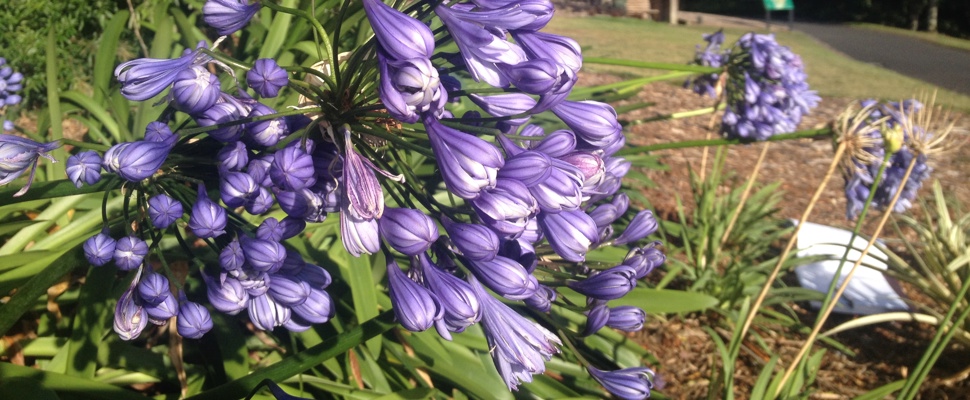
Agapanthus for Auckland
Cultivars that meet the Auckland Council Regional Pest Management Plan
Low fertility Agapanthus Cultivars
Agapanthus (Agapanthus praecox) is a popular garden plant, but its hardiness and high seed production mean it is an environmental weed. It’s jumped the garden fence onto roadsides, coastal cliffs and forests where it outcompetes and smothers native plants. In some coastal cliffs, when pōhutukawa trees die of old age there will be no more trees to replace them as the carpet of Agapanthus prevents pōhutukawa seedlings from growing. To slow further invasion of Agapanthus into natural ecosystems Auckland Council has declared Agapanthus praecox a Sustained Control plant in the Auckland Pest Management Plan 2020-2030.
The great news is you can still plant cultivars of Agapanthus that have passed low fertility tests. These cultivars do not produce any, or hardly any, seeds. This means they should stay where you plant them and not affect natural places nearby.
A full article on the trialling process and assessments was published in the International Society for Horticultural Science in 2018 and you can read it here.
From 2019, the trial was widened to other gardens around the country to assess their seed set in other climates. Those that passed the low fertility tests produced less than 2% seed:
- A. ‘Agapetite’
- A. ‘Baby Pete’
- A. ‘Blue Finn’ (syn. ‘Ecostorm’)
- A. ‘Blue Ice’
- A. ‘Dorothy Edwards’
- A. ‘Finn’
- A. ‘Goldstrike’
- A. ‘Kath’
- A. ‘Mini Me’
- A. ‘Pavlova’
- A. ‘Rachel’
- A. ‘Sarah’
- A. ‘Sea Foam’*
- A. ‘Snowdrops’*
- A. ‘Surprise Storm’
- A. ‘Thunder Storm’ (syn. A. ‘Thunderstorm’)
*There are some plants in circulation under this name but with high seed set – these do not match the cultivar we tested and are likely to have been misnamed.
List updated January 2025.
These proven “eco-friendly” selections can be sold under the “Ecopanthus™” trademark to show that they have passed the seed set trials. The list on this webpage will be updated if we find other selections proven to produce less than 2% seed set.
Who has tested these plants?
In 2012 an Agapanthus Working Group (AWG) was established to identify low fertility cultivars. The group is made up of Auckland Council Biosecurity, Auckland Botanic Gardens, Manaaki Whenua Landcare Research, Plant & Food Research, New Zealand Plant Producers Incorporated, and the nursery production industry. The group has since partnered with other botanic gardens to trial Agapanthus.
Do you have a low fertility cultivar not on this list?
The AWG is happy to add low fertility cultivars to this trial. If you are a plant breeder that has a cultivar with low to no seed production please contact us and we can outline how your cultivar can be included in this trial.